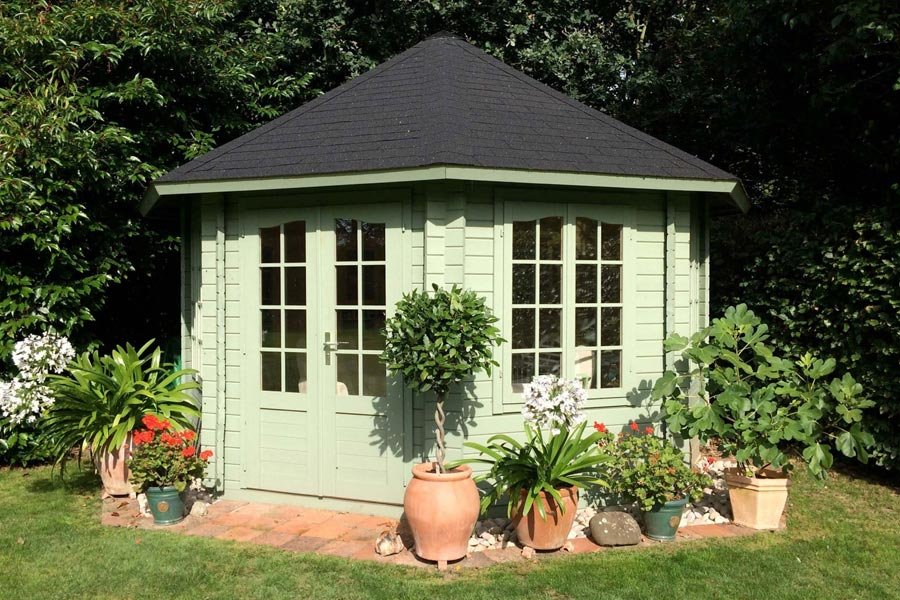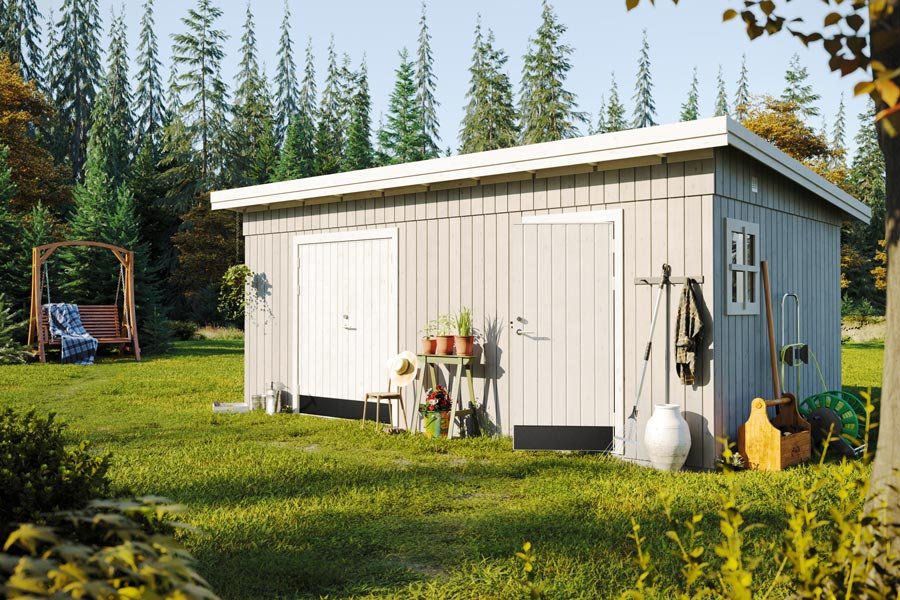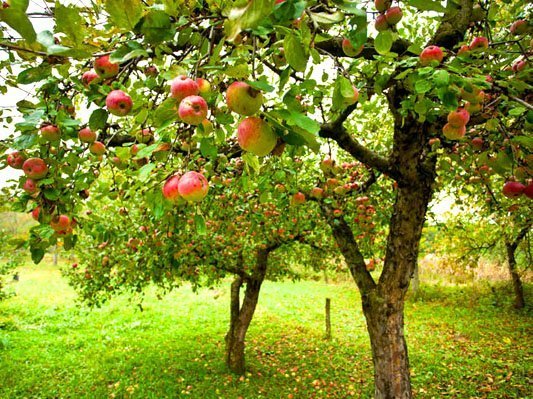
Gardening, therapy and mental health
Have you noticed how people are talking about gardening, therapy and mental health recently? ‘Horticulture therapy’, as some people call it, is an increasingly popular prescription for everything from depression and anxiety to loneliness and lack of purpose.
In one recent survey, four out of five people said gardening has a better impact on mental health than hitting the gym. The Metro newspaper quoted a psychotherapist saying, ‘Gardening is a brilliant de-stressor. Hacking down shrubs, mowing the lawn, digging in bulbs, even just weeding and planting can lower blood pressure and create a healthy mindful state.’
According to the report, the combination of fresh air, exercise, natural light and Vitamin D can help fend off depression and low moods.

Gardening; therapy for modern life
You don’t just have to take Metro’s word for it. There’s a growing (no pun intended) number of organisations using gardening and farming to help people with disabilities, health or mental issues.
There’s Thrive, for example, a charity that ‘uses gardening to change lives’. It helps people with disabilities or mental health issues to garden, and it runs a wonderfully practical website with tips on gardening after a stroke, in a wheelchair, with one arm, or other conditions. It has a nice leaflet you can download giving advice on using gardening to improve your emotional wellbeing. It’s called Gardening: The feel good factor.
Meanwhile, the Royal Horticultural Society (RHS) is funding a pilot scheme for GPs to refer patients with a variety of ailments to ‘therapy gardens’ – there’s an interesting article about it here.
But you don’t have to be clinically depressed or ravaged by stress to get the benefits of horticulture – anyone can give themselves a wellbeing boost by getting out the gardening gloves. In fact, when it comes to gardening, therapy and mental health, you don’t even need your own garden!
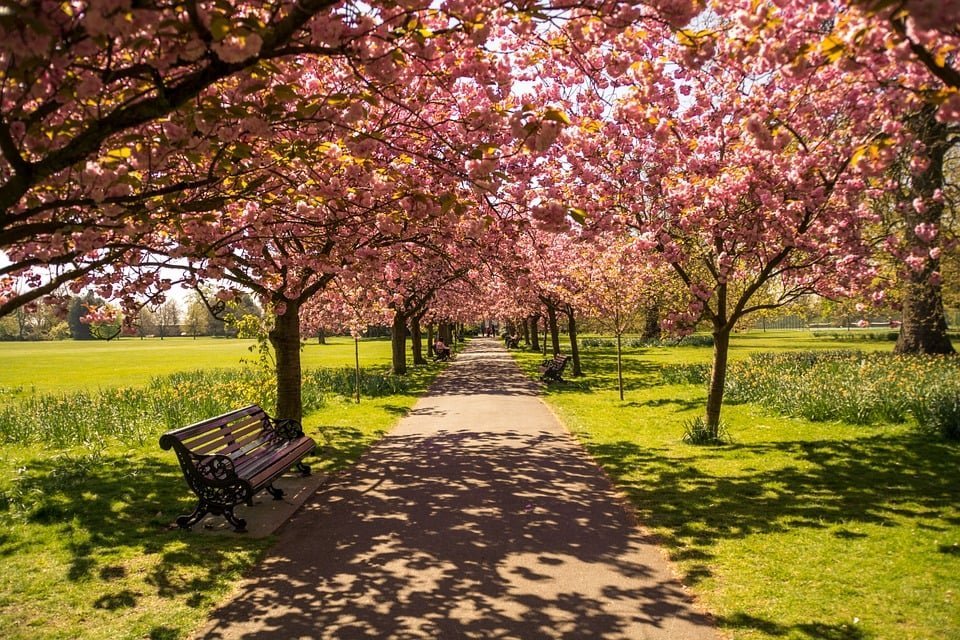
No garden, no problem
When you think about what gardening actually is, it’s really not surprising that it’s a powerful destressing mechanism. As long as you leave your mobile behind, being outside, surrounded by nature, away from the pressure of the office and free from nagging email inboxes and notifications, what better setting to relieve tension and promote calm in our hectic lives?
If you aren’t lucky enough to have your own garden, then spending some downtime in a city park or strolling out of town through fields or woods can be just as effective.
Scientists have actually found that as humans, we instinctively relax when we’re in a natural setting – one Stanford University study found spending time outdoors decreased activity in areas of the brain responsible for depression and negative emotions, as well as lowering levels of stress hormones. It’s in our DNA: we like to be outdoors, and when we are, our bodies and minds thank us for it.

Breaking a sweat to beat the blues
When considering gardening, therapy and mental health, it’s worth considering getting active outdoors. While perhaps not akin to Olympic weightlifting or marathon running, gardening certainly counts as exercise. You can burn almost 400 calories from an hour of lawn-mowing, according to Saga.
Just like running or weightlifting, gardening releases the feel-good hormones known as endorphins, along with a whole host of others including the so-called ‘happy chemical’ serotonin. Regular endorphin release has been shown to reduce stress and anxiety and improve sleep and even self-esteem.
And, there’s one benefit that running and weightlifting certainly can’t offer – if you use your garden to grow some fruit and veg, you’ll get a further health boost from all the vitamins and other nutrients they’ll bring to your diet. You don’t get that from 10 minutes on the treadmill.

How to reap the rewards
You don’t have to be gardening to relax or destress, but it does give you an incentive to spend time outdoors, keep moving and do something life-affirming.
Apparently, designing your garden to be a ‘myriad of greens’, rather than a riot of colour, is particularly restorative. And having a design that forces you to move slowly – with winding paths and stepping stones etc – is also suggested to be therapeutic and an aid to mental health. It’s based on the mindfulness concept.
On the other hand, you may prefer bright colours and geometric patterns – we each have own feel-good preferences.
You could also think about creating a separate ‘you’ space in your patch, such as a summer house or other garden building, which can create a peaceful sanctuary – a safe space, if you will, that adds a layer of protection between you and the worries of your daily life.
We have a great range of garden buildings on our website for you to take inspiration from, and to suit a range of budgets. There are spacious garden rooms like the Iris model that you could use for yoga or mindfulness; sun rooms like Inis where you can open the bifold doors wide and enjoy fresh air and natural light; and summer houses like Veronica with windows on all sides and timber gazebos so you can sit outside under shelter and admire the fruits of your labour.
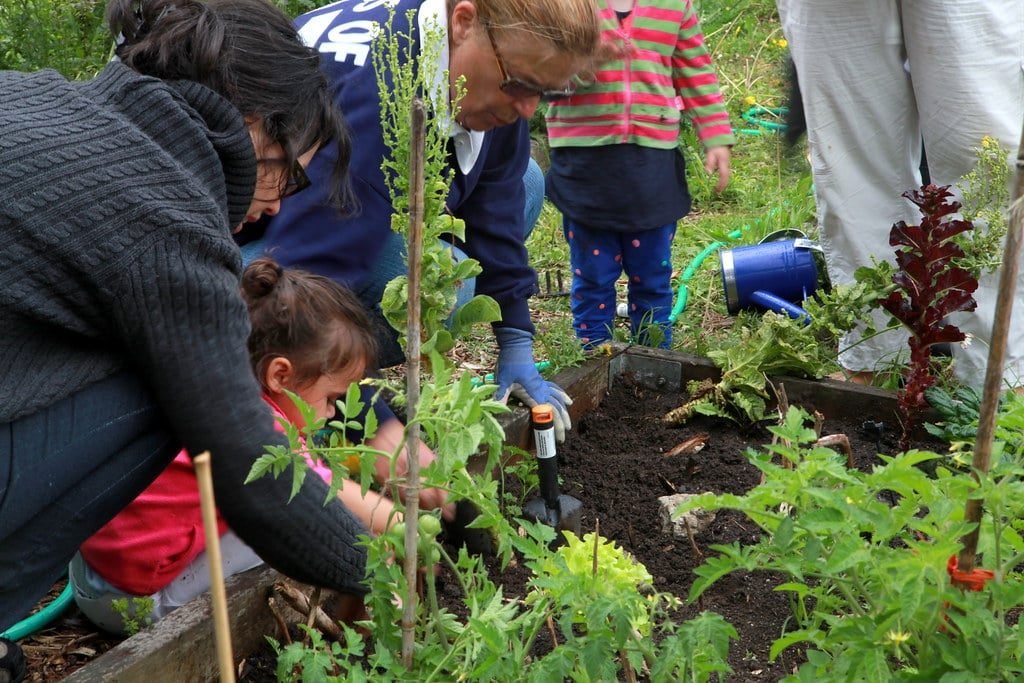
Part of something bigger; join a gardening group
At some point, most of us will be hit by feelings of isolation or loneliness – it seems like a 21st-century pandemic. This too is something gardening therapy can help with.
Many of us garden alone, but social gardening is also very much a thing. It’s a great way to connect with people you wouldn’t otherwise have met, alongside reaping all the health benefits we’ve already covered.
Thanks to organisations like Farm Garden, you should be able to find gardening groups and initiatives in your local area. The RHS also has some good community gardening webpages, where you can find local groups or get ideas for setting one up. Groundwork is another great example of a nationwide community gardening initiative.
Gardening with a goal
As humans, we seem to be hardwired to work towards a goal, and gardening gives us one – be it a grand flower garden worthy of the Chelsea Flower Show, a community project or just a mini herb garden in a couple of window boxes.
Of course, when considering the crossover of gardening, therapy and mental health, gardening alone isn’t an instant cure-all for modern life’s ills. The process of creating a garden is a slow one, and plants don’t always thrive like you want them to. But the commitment you put in is always well-rewarded – not necessarily with a bumper crop of carrots, with a sense of purpose, a stake in the future, and something to care for. Doesn’t that sound like just what the doctor ordered?






